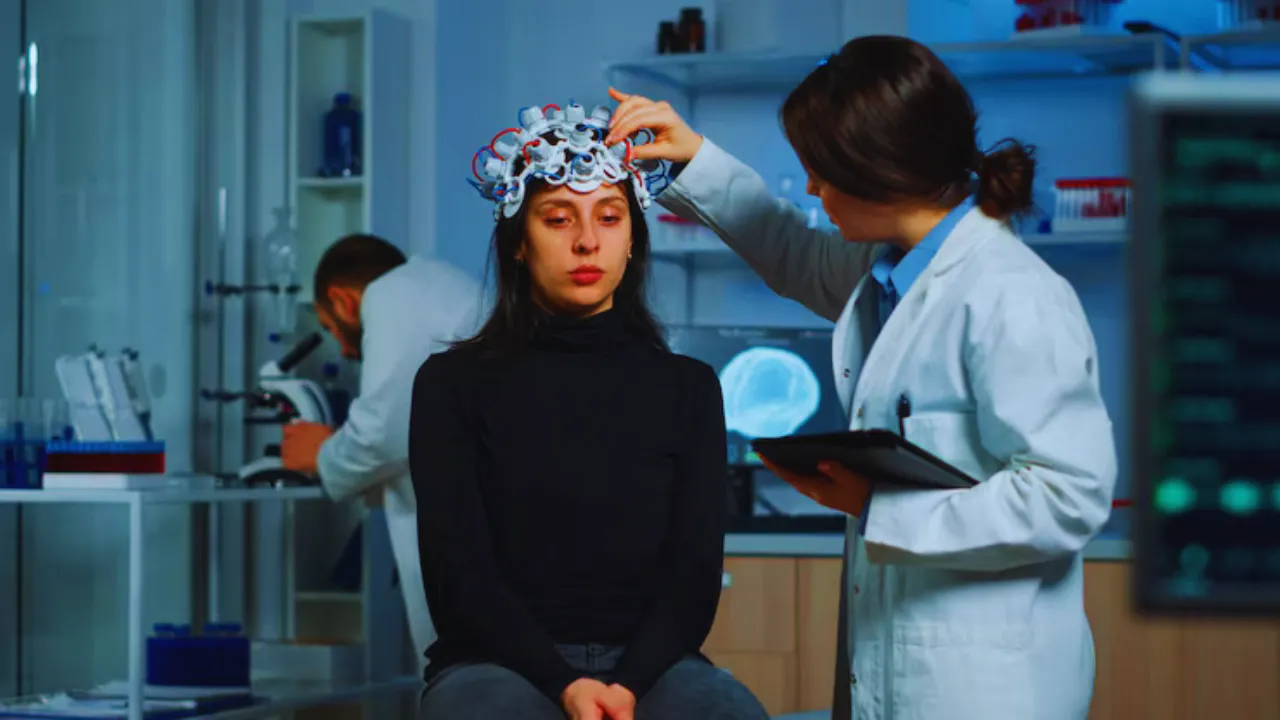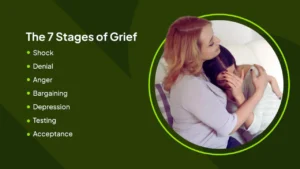The demand for mental health services in the healthcare industry is at an all-time high. The demand for qualified mental health technicians (MHTs) has never been higher due to the increase in cases of anxiety, depression, and other mental health conditions. Under the direction of psychologists and psychiatrists, these specialists are essential in helping patients.
As 2025 approaches, mental health technicians are becoming more widely acknowledged as essential to providing quality patient treatment. The main topics are the training and job advancement prospects for mental health technicians in 2025.
Table of Contents
ToggleWhat is a Mental Health Technician?
Often referred to as psychiatric technicians, mental health technicians collaborate closely with patients to monitor their symptoms, support treatment plans, and provide a secure atmosphere. They act as a liaison between patients and certified mental health specialists.
| Aspect | Description |
| Role | Assists mental health professionals in patient care |
| Education Required | Certificate or Associate Degree in Behavioral Science or related field |
| Workplaces | Hospitals, mental health facilities, rehabilitation centers |
| Skills Needed | Compassion, observation, communication, and crisis intervention |
| Certification | Optional but highly recommended (e.g., AMHT certification) |
Educational Requirements and Training Programs
Prospective applicants must fulfill specific training and educational requirements to become mental health technicians in 2025. Most businesses want an associate degree or at least a postsecondary certificate in behavioral science, psychology, mental health technology, or a similar discipline. Many community institutions, internet platforms, and vocational schools currently offer tailored curricula.
The main topics of training are patient care techniques, knowledge of mental diseases, therapeutic communication, and crisis management. In 2025, programs will increasingly incorporate internships or practical clinical experiences to give students exposure to the real world before entering the workforce.
Popular Mental Health Technician Programs in 2025
| Institution | Program Offered | Duration | Mode |
| BrightPath Institute | Mental Health Technician Certificate | 1 year | Online + Internship |
| CareWell College | Associate Degree in Behavioral Health | 2 years | On-campus |
| FutureCare Academy | Psychiatric Technician Diploma | 18 months | Hybrid |
| HealthFirst Learning | Mental Health Support Training | 6 months | Online |
Important Skills for Mental Health Technicians

Mental health technicians need a combination of hard and soft skills to do their jobs well. Since patient behavior changes must be recorded carefully, observational abilities are essential. Effective communication skills ensure clear interactions with patients and the mental health team. Additionally, emotional resilience, empathy, and patience are critical qualities for handling delicate situations.
To make sure technicians are prepared for the demands of contemporary healthcare, advanced training programs in 2025 will emphasize emerging skill areas like trauma-informed care, digital patient record-keeping, and fundamental counseling techniques.
Certification and Licensure for Mental Health Technicians
Although not required in every state or nation, certification can greatly increase employment opportunities. Certification exams that verify a candidate’s knowledge and abilities are offered by the American Association of Psychiatric Technicians (AAPT) and other professional associations. Typical certification requirements are as follows:
- Finishing a recognized training course
- Hours of clinical experience
- Getting through a competency test
Licensure may also be necessary in some areas, particularly for technicians who provide specialized therapy services or administer medications.
Top Certifications for Mental Health Technicians in 2025
| Certification | Issuing Body | Key Benefits |
| Certified Mental Health Technician (CMHT) | AMHT | Boosts employability |
| Certified Psychiatric Technician (CPT) | AAPT | Recognition in mental health care settings |
| Behavioral Health Technician Certificate | NAHCE | Widens job opportunities |
Career Opportunities and Growth Paths
Mental health technicians (MHTs) appear to have a bright future in 2025. The need for qualified specialists is steadily rising due to government initiatives and campaigns to raise awareness of mental health issues. MHTs can work in drug rehab centers, outpatient clinics, residential treatment institutions, and mental health hospitals.
In addition to entry-level positions, technicians can specialize in fields like addiction treatment, geriatric psychiatry, trauma services, or adolescent mental health. Many people seek further schooling to become certified counselors, social workers, or psychiatric nurses.
Salary Expectations for Mental Health Technicians in 2025
Mental health technicians’ pay varies according to their location, certification, experience, and level of schooling. The typical yearly wage in 2025 is between $35,000 and $55,000, with bonuses and overtime compensation possible. Specialized and certified technicians might earn more money.
Challenges Faced by Mental Health Technicians
It can be emotionally taxing to work as a mental health technician. Technicians frequently deal with crises, emotional breakdowns, and violent behavior. Failure to maintain appropriate self-care habits increases the likelihood of burnout. Managing intricate paperwork and working with multidisciplinary teams can sometimes be stressful.
Organizations are increasingly offering professional counseling, stress management training, and staff wellness programs to help mental health technicians.
Future Trends in Mental Health Technician Roles
The role of mental health technicians is evolving with technology and healthcare innovation. In 2025, major trends include:
- Use of digital platforms for patient monitoring
- Telehealth mental support services
- Specialized training for trauma and PTSD care
- Increased collaboration with AI-driven therapy tools
Technicians who adapt to these changes and continue professional development will enjoy sustained career growth.
Wrapping Up
For people who are passionate about helping others, becoming a mental health technician in 2025 is a fulfilling career choice. Numerous chances in the healthcare industry are made possible by proper training, certification, and skill development. Trained technicians will be crucial to assisting treatment teams and enhancing patient outcomes as mental health care becomes an even greater focus. Mental health technicians can have steady, meaningful, and rewarding jobs for a long time to come if they remain dedicated to learning and adjusting to new trends.
FAQs About Mental Health Technicians
Required to become a mental health technician in 2025?
In 2025, a postsecondary certificate or an associate degree in psychology, behavioral science, or mental health technology is often required for employment as a mental health technician. Additionally, some programs integrate clinical practice with short-term certifications or diplomas.
Is certification necessary for mental health technicians in 2025?
While not often required, certification greatly enhances employment opportunities. Acquiring certifications such as the Certified Psychiatric Technician (CPT) or the Certified Mental Health Technician (CMHT) demonstrates your dedication to professional standards.
What is the average salary for a mental health technician in 2025?
The average yearly compensation for mental health technicians in 2025 will be between $35,000 and $55,000. Salary packages are influenced by variables such as years of experience, certification level, facility type, and geographic region.
What are the career advancement options for mental health technicians?
Career progression options include focusing on geriatric mental health, substance misuse therapy, or adolescent care. Additionally, technicians can continue their studies to become certified case managers, mental nurses, or counselors. Thus, the possibility of job advancement in mental health services is greatly increased.
Where can mental health technicians work after completing training in 2025?
After completing their training, mental health technicians can work in psychiatric hospitals, outpatient mental health clinics, residential treatment centers, rehabilitation centers, and drug rehab centers. Others work for community-based mental health groups, schools, and correctional facilities.
What are the major skills required to succeed as a mental health technician?
Skills such as effective communication, empathy, patience, crisis response, and observation are essential for success as a mental health technician. In 2025, employers in the healthcare industry will be looking for more skills, such as cultural competency and trauma-informed care methods.
How is the demand for mental health technicians expected to grow beyond 2025?
The need for mental health technicians is expected to increase beyond 2025. Growth is being driven by factors such as aging populations, heightened awareness of mental health issues, and the incorporation of behavioral health into primary care systems.





